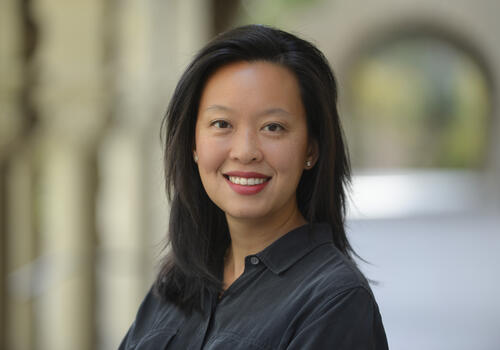Join the REDI Task Force for the next event in our "Critical Conversations: Race in Global Affairs" series as we examine policing and criminalization.
Activist calls to "defund the police" have catalyzed new conversations about the function and purpose of policing. Yet the realities of policing and criminalization, as a function of a state-apparatus that protect power and private property, are varied and complex. Beyond the day-to-day experiences of traffic violations or emergency calls, policing can be expanded to analyze institutions and communal experiences of criminalization - from the military to schooling to struggles for democracy. One broad area of agreement is the disproportionate harm that policing and criminalization has on marginalized and dispossessed populations, from Black schoolchildren to vigilantism in a post-apartheid state. This panel will travel the globe, describing specific cases in Africa, the U.S., and Latin America, articulating the connections between state violence, criminalization, and policing.
This online event is free and open to the public.
Speaker bios:
Didi Kuo is the Associate Director for Research and Senior Research Scholar at the Center on Democracy, Development, and the Rule of Law at Stanford University. She is a scholar of comparative politics, with a focus on democratization, corruption and clientelism, political parties and institutions, and political reform. Her recent work examines changes to party organization, and the impact these changes have on the ability of governments to address challenges posed by global capitalism. She is the author of Clientelism, Capitalism, and Democracy: the rise of programmatic politics in the United States and Britain (Cambridge University Press, 2018), which examines the role of business against clientelism and the development of modern political parties in the nineteenth-century.
She has been at Stanford since 2013 as the manager of the Program on American Democracy in Comparative Perspective, which examines problems such as polarization, inequality, and responsiveness, and recommends possibilities for reform. She also teaches in the Fisher Family Honors Program at CDDRL. She is a non-resident fellow in political reform at New America, where she was a 2018 Eric and Wendy Schmidt Fellow. She received a PhD in political science from Harvard University, an MSc in Economic and Social History from Oxford University, where she studied as a Marshall Scholar, and a BA from Emory University.
Subini Annamma is an Associate Professor in the Graduate School of Education at Stanford University. Her research critically examines the ways students are criminalized and resist that criminalization through the mutually constitutive nature of racism and ableism, how they interlock with other marginalizing oppressions, and how these intersections impact youth education trajectories in urban schools and youth prisons. Further, she positions students as knowledge generators, exploring how their narratives can inform teacher and special education. Dr. Annamma’s book, The Pedagogy of Pathologization (Routledge, 2018) focuses on the education trajectories of incarcerated disabled girls of color and has won the 2019 AESA Critic’s Choice Book Award & 2018 NWSA Alison Piepmeier Book Prize. Dr. Annamma is a past Ford Postdoctoral Fellow, AERA Division G Early Career Awardee, Critical Race Studies in Education Associate Emerging Scholar recipient, Western Social Science Association's Outstanding Emerging Scholar, and AERA Minority Dissertation Awardee. Dr. Annamma’s work has been published in scholarly journals such as Educational Researcher, Teachers College Record, Review of Research in Education, Teaching and Teacher Education, Theory Into Practice, Race Ethnicity and Education, Qualitative Inquiry, among others.
Kanisha Bond is an Assistant Professor of Political Science at Binghamton University (SUNY). Bond earned a PhD in Political Science from Penn State University, an MPP (International Development & Crime Policy) from Georgetown University, and a BA (International Relations & Spanish) from Bucknell University. Bond's work orbits one central research question: How do organization and identity influence dynamics of political challenge in polarized societies? She uses quantitative and qualitative methods to examine specifically mobilization and institution-building among radical socio-political groups around the world, and particularly in North America, Latin America, and Africa. Her written work has been published in the American Political Science Review, Journal of Politics, British Journal of Political Science, International Negotiation, Qualitative and Mixed Methods Research, and the Newsletter of the Comparative Politics Section of the American Political Science Association. She has contributed book reviews to the American Journal of Sociology and Journal of Conflict Studies, and research-based public commentary to Foreign Policy, The Washington Post, The New York Times, and Adi Magazine.
She also co-convene the Advancing Research in Conflict (ARC) Consortium Summer Program, which provides methods and ethics training and support to researchers working in violence-affected contexts, and serve on a variety of editorial, review, and advisory boards for organizations that advocate for rigorous and accessible political science in the public interest.
Dorothy Kronick is an Assistant Professor of Political Science. She studies Latin American political economy, focusing on Venezuela and the politics of crime and policing. Dorothy completed her PhD at Stanford University. Prior to her doctoral studies at Stanford, Dorothy lived in Caracas as a Fulbright Scholar. Her research has appeared or is forthcoming in the American Political Science Review and the Journal of Conflict Resolution; her writing on Venezuelan politics has been published in The New York Times, The Washington Post, FiveThirtyEight, The New Republic, and Caracas Chronicles, among other outlets.
Nicholas Rush Smith is an Associate Professor of Political Science at the City University of New York – City College and a Senior Research Associate in the Department of Sociology at the University of Johannesburg. He is the author of Contradictions of Democracy: Vigilantism and Rights in Post-Apartheid South Africa (Oxford University Press, 2019) and, alongside Erica S. Simmons, co-editor of Rethinking Comparison: Innovative Methods for Qualitative Political Inquiry (Cambridge University Press, 2021). His work has also been published in African Affairs, American Journal of Sociology, Comparative Politics, Perspectives on Politics, Polity, PS: Political Science and Politics, and Qualitative and Multi-Method Research, among other outlets.












